What sports camera to choose in 2025?

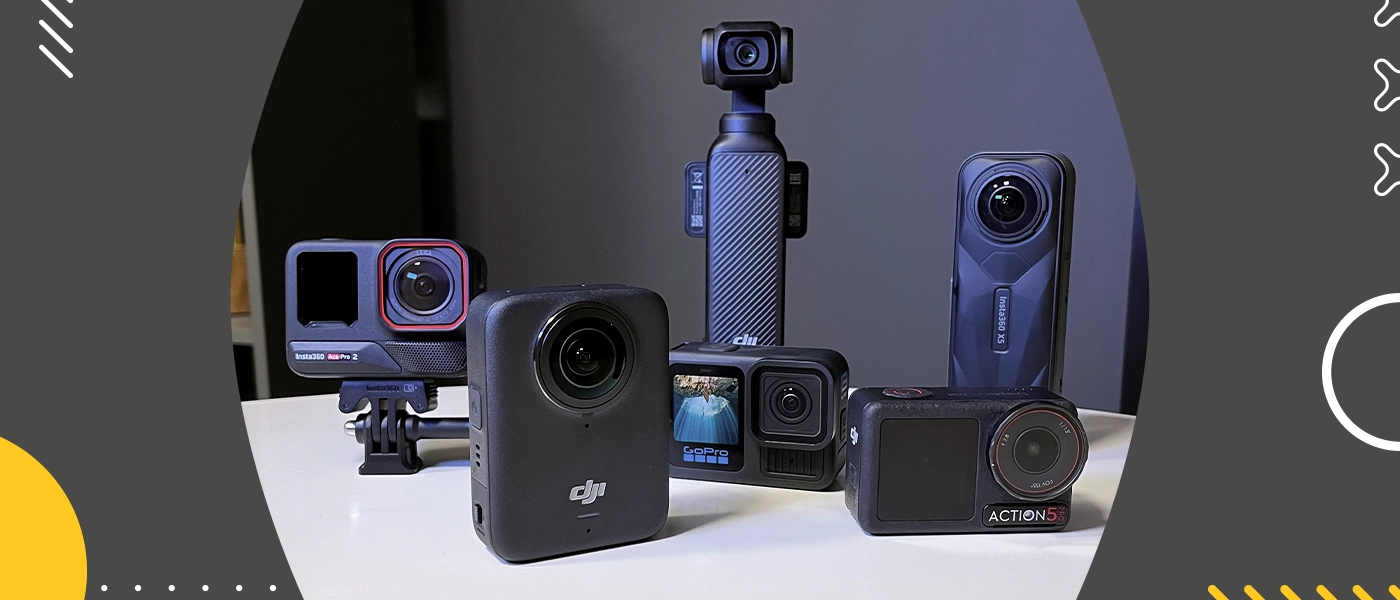
You are planning to be active and are wondering which camera will be best? We understand this well, as Megadron we have been testing cameras for years sporting on the ground, in the water and... in the air - mounting FPV drones. That's why we know that a good camera is equipment that must be reliable in any situation.
In this article you will find an overview of the best sports (and non-sports) cameras available in 2025 - broken down by purpose and budget. But before we get into specifics, one question is worth answering:
Why you should invest in a sports camera?
Smartphones can do more and more, but they still can't capture the dynamics of extreme shots or cope with harsh weather conditions. The sports camera is designed so you can capture what other devices simply can't - whether you're biking down a rocky trail, diving, running or crawling through the mud.
Table of Contents:
- A sports camera for most users
- Rugged sports camera good for night shots
- The most possibilities with 360° cameras
- Best camera for vlogs
- The camera with the best value for money
- Top camera quality for content creators
- The smallest and cheapest sports camera proposal
- Comparison of sports camera specifications
- Comparison of creative camera specifications
- What to look for when choosing a sports camera?
- Summary
A sports camera for most users
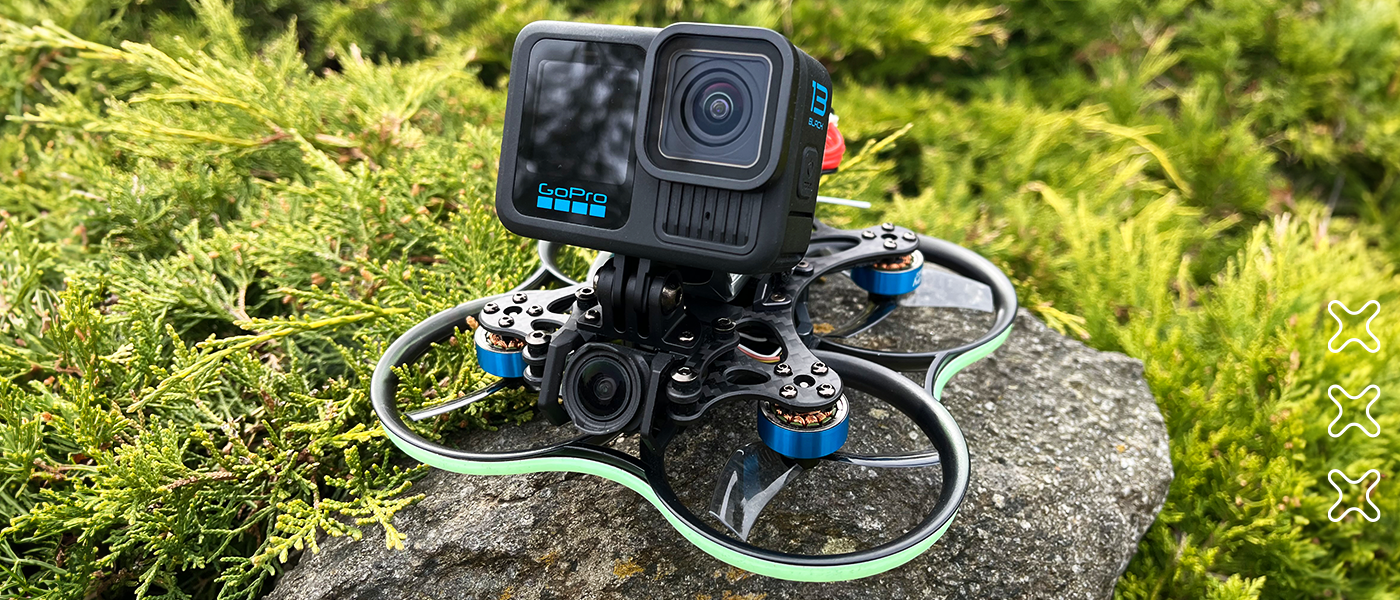
GoPro remains the market leader for a reason. Model Hero 13 Black is the latest model of a proven camera - with several important features. Particularly noteworthy are the interchangeable lenses of the HB series (ultra wide-angle, anamorphic, macro), which greatly enhance the capabilities of the camera. The battery allows recording for up to 90 minutes footage in 4K 30FPS. The image quality here stands at a very high level - recording in 5.3K, 10-bit color and great HyperSmooth stabilization make it one of the better choices for most users.
Pros:
- 5.3K in 10-bit color
- hyperSmooth digital stabilization 6.0
- advanced slow-mo modes
- hB series interchangeable lenses
- lot accessories
- lightweight, can be mounted on the drone
Minuses:
- average recording quality in low light
- shorter battery life compared to competitors
- water resistance only up to 10 m
Rugged sports camera good for night shots
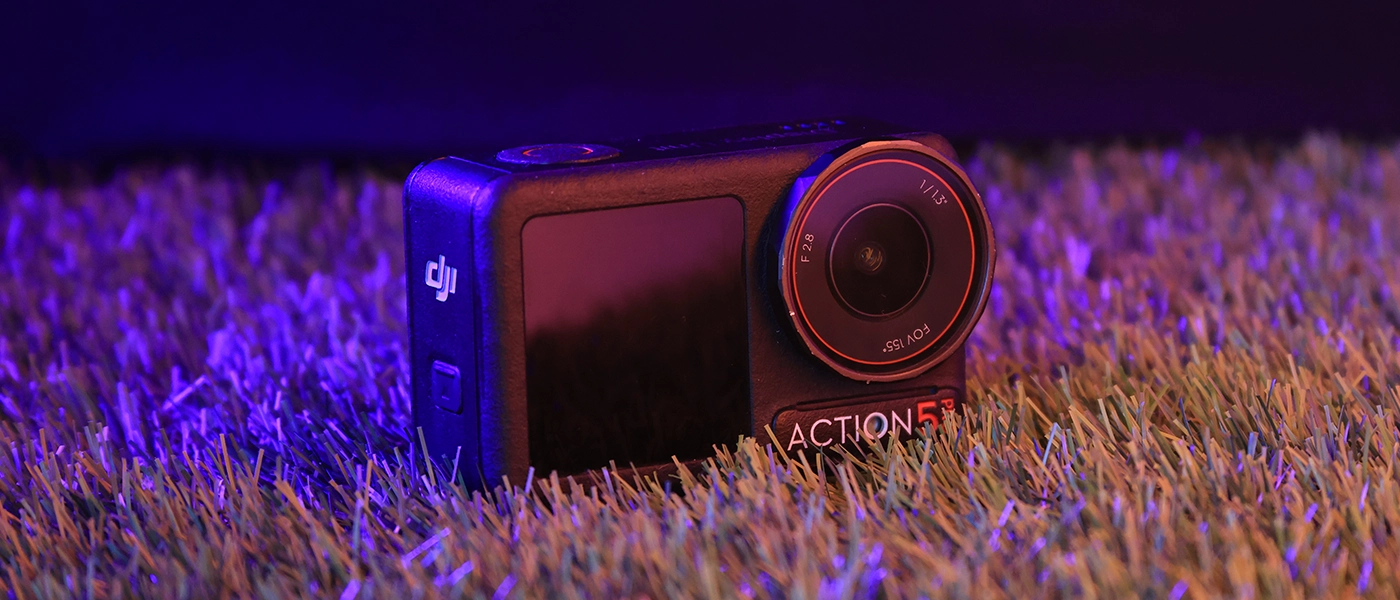
DJI long searched for a way to successfully enter the world of sports cameras - until it finally succeeded. Osmo Action 5 Pro has a larger sensor (1/1.3") than GoPro, which translates into better low-light shots. This is of great importance, for example, at sunset or in the forest. The battery lasts for more than 2 hours of recording in 4K 60FPS, a built-in memory 47 GB can save the situation when you forget the SD card. The camera is waterproof up to 20 meters (without housing) and works with microphones DJI (DJI Mic 2 i Mic Mini), which will be appreciated by vloggers. Shortcomings? The maximum resolution is 4K, and the stabilization, while good, does not match that of the Hero 13.
Pros:
- very good image quality at night
- 4K 60FPS for over 2 hours
- 10-bit D-log M color mode
- built-in memory 47 GB
- microphone compatibility DJI
- two OLED touch screens
- water resistance up to 20 meters
Minuses:
- maximum resolution 4K
- stabilization slightly weaker than in GoPro
The most possibilities with 360° cameras
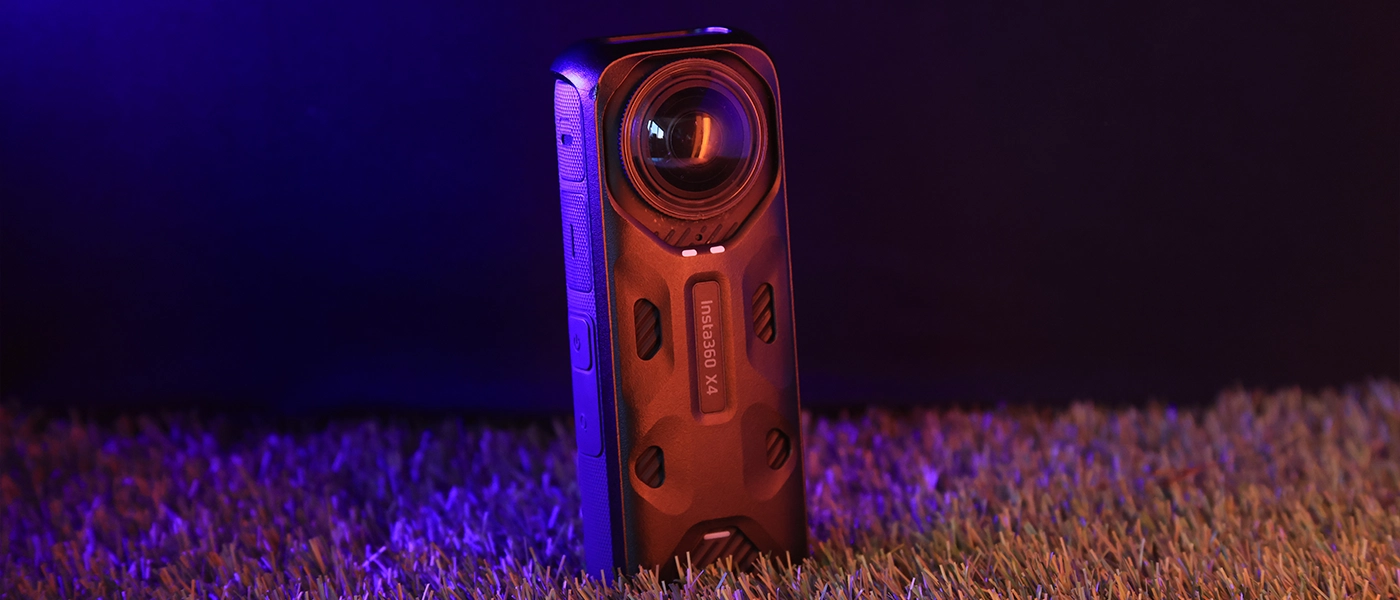
If you want to record everything around you and frame after the recording is done, then the 360° camera is for you. Insta360 X4 is a solid option in this category, offering 8K recording and a "Me Mode" function, which removes the selfie stick from the frame. Ideal for VR and creative shots. X4 is water resistant (up to 10 m), has a satisfactory runtime and removable lens caps. However, it has poorer image quality in low light and very large video files that take up a fair amount of space on the memory card. An interesting proposition for bikers, motorcyclists as well as filmmakers who want to record everything around them and decide on the framing during editing.
Pros:
- recording 360° footage in 8K quality
- "Me Mode" - levitating camera effect
- waterproof up to 10m (for a 360° camera this is a great feature)
- lens covers and convenient application
- greater ability to edit and adjust frames
Minuses:
- recorded materials are large files
- inferior image quality in low light
- less handy device than typical sports cameras
- editing requires knowledge and time
- better results with accessories
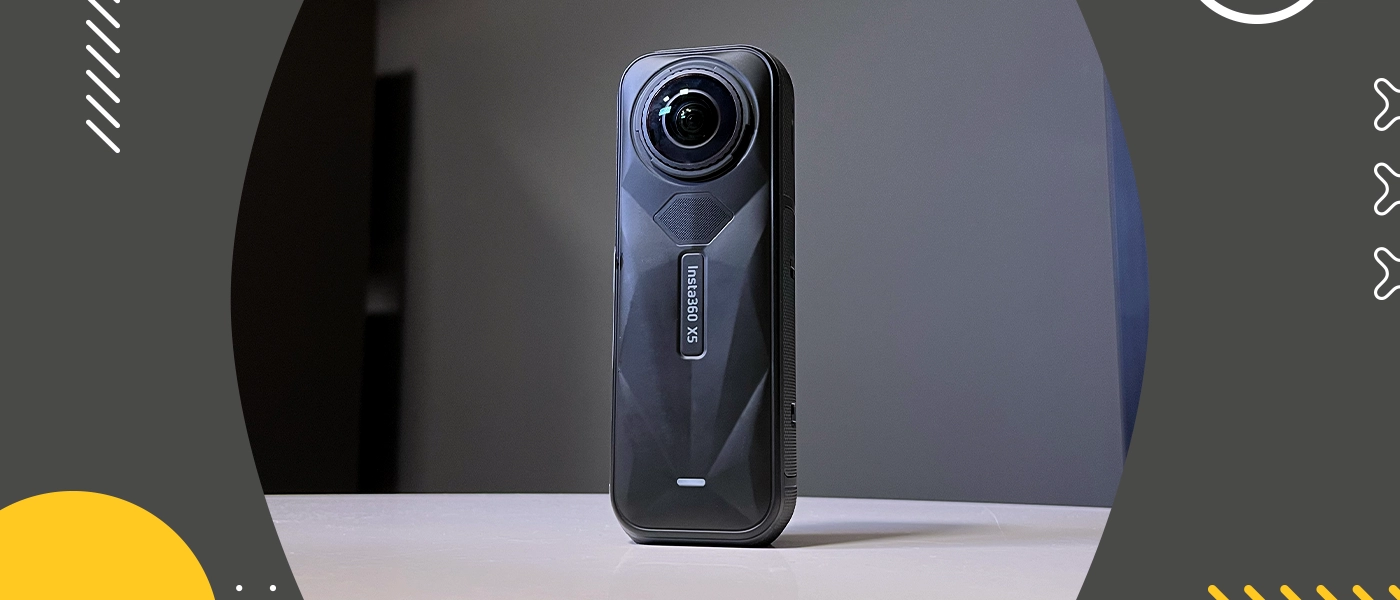
Insta360 X5 is a camera that raises the bar for Insta360. It surpasses the X4 in terms of image and sound, primarily due to its larger 1/1.28" sensor and triple AI processing. 360° material looks better in bright sunlight as well as after dark. PureVideo mode can handle even very low light, and Supersampling with 11K makes the final video in 8K or 5.7K look sharper. Audio quality has also been improved - now the camera captures audio spatially and clearly, even in dynamic recordings.
On the other hand, the X5 is a camera for conscious users - Its full potential will be exploited by those who know the capabilities of AI modes and can consciously apply them in editing. The interface and multitude of options can be overwhelming at first for new users. The camera itself is also larger and bulkier than the X4. An interesting solution is interchangeable lenses, which are a huge plus in terms of servicing.
Pros:
- great 360° image quality, even at night
- 11K supersampling from 8K or 5.7K
- pureVideo mode and better sound
- more options for professionals and VR editing
- waterproof up to 15 m
- compatibility with microphones DJI Mic
Minuses:
- larger in size and weight than the X4
- knowledge needed and time to edit
- works best with additional accessories
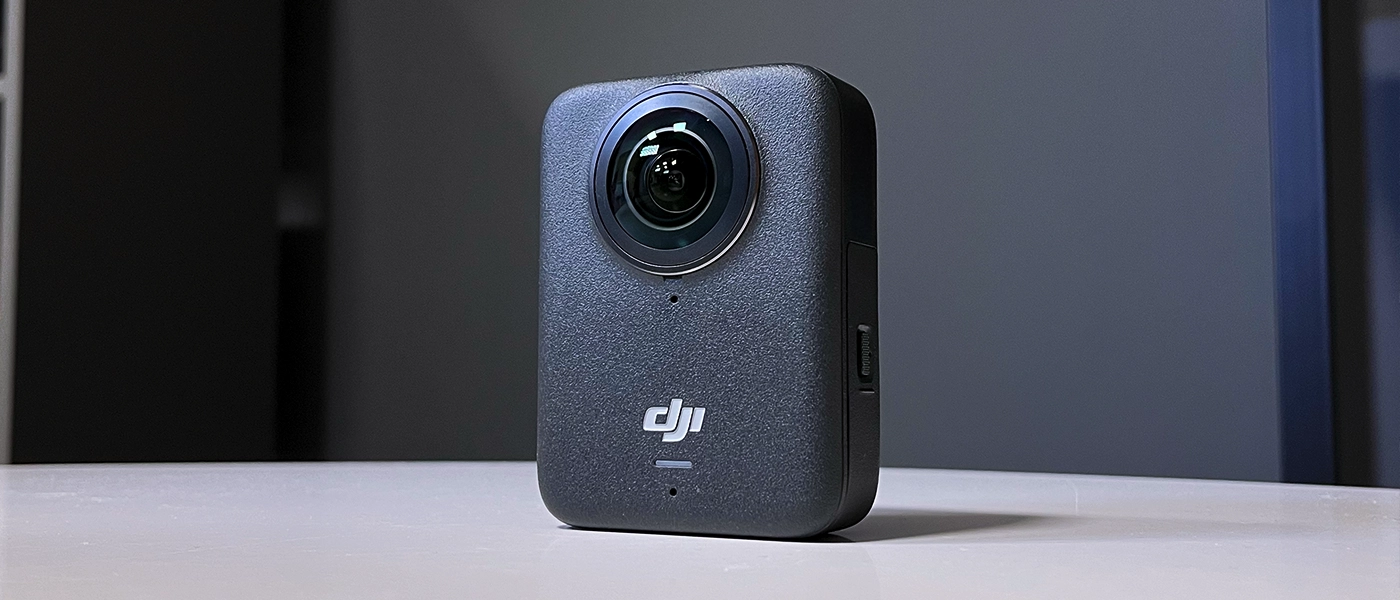
DJI enters the spherical 360° camera market for the first time (premiere 31.07.2025r.) and it's with a firm grip. DJI Osmo 360 is a piece of equipment that competes with models such as the Insta360 X4 and X5, and even wins over them in many respects. Even on paper it looks impressive - recording in 8K/30FPS in 360° mode, photos 120 MP, slow motion in 4K/100FPS and support for logarithmic mode for color grading. Is it enough to aspire to the level of Insta360 cameras?
In direct competition with the Insta360 X4/X5, the DJI Osmo 360 camera offers higher resolution images, a more effective night mode, and a 10-bit D-Log M color profile, providing more opportunities. Despite its smaller capacity, the Osmo 360's battery lasts longer while recording and charges faster. On the plus side, there are also more advanced microphones that better capture ambient sound.
The design of the camera also makes a difference, the Osmo 360 is smaller, lighter and more portable from their Insta360 counterparts. This is of great importance, especially when recording from a boom or selfie stick. An important paramter, the camera has built-in memory of 128 GB, which sets it apart from the competition and eliminates the need for a microSD card right out of the box. As if that wasn't enough, the Osmo 360 is available at a lower price than Insta360 X4/X5.
It will work well in the hands of creative travelers and athletes who want to create dynamic, professional-looking content with great editing capabilities. In our opinion DJI Osmo 360 is currently the best choice when it comes to 360 cameras. The camera is thoughtfully designed, technologically powerful and well made. For someone looking for quality it will be a hit.
Pros:
- native 8K/30FPS recording
- higher image resolution of 120 MP
- 10-bit color and logarithmic mode
- superNight mode
- water resistance up to 10 m (solid as in X4)
- high-quality sound recorded with 4 omnidirectional microphones
- compatibility with microphones DJI Mic
- 128 GB built-in internal memory
- great price to quality ratio
- less weight of the camera compared to the competition
Minuses:
- currently no streaming capability
- DJI Studio editing app has fewer features than Insta360 Studio
Best camera for vlogs
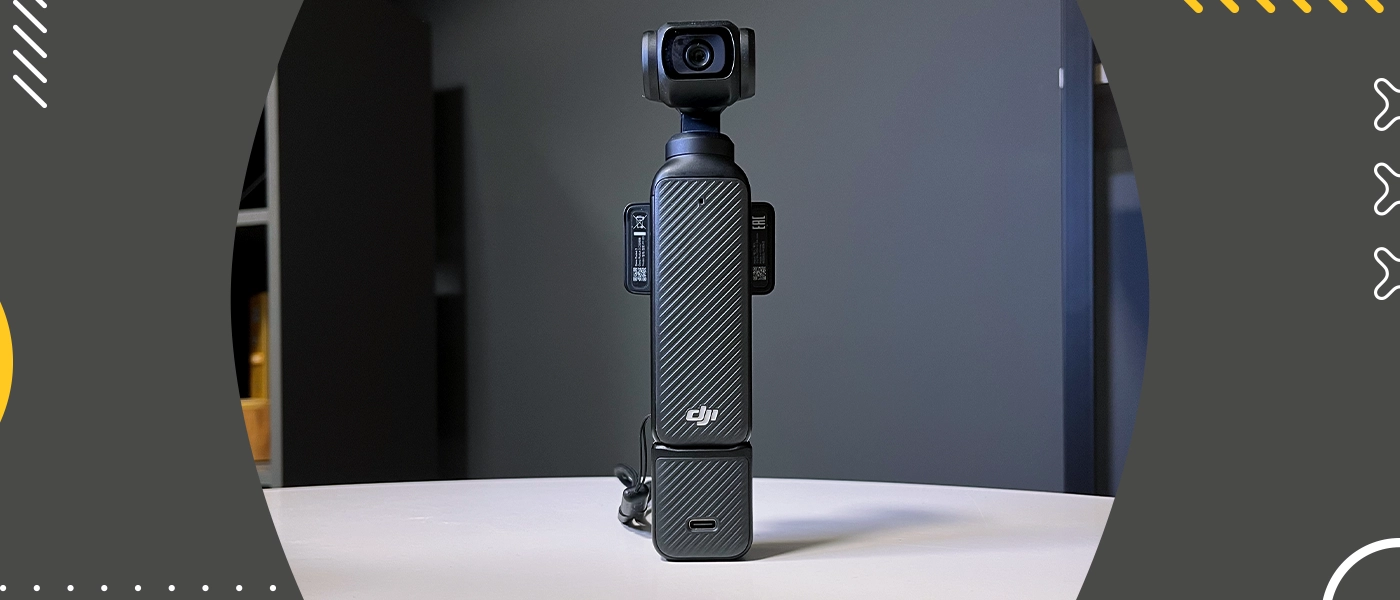
DJI Osmo Pocket 3 is a humble mobile studio for vloggers. Pocket 3 is the perfect tool for creatives on the go. 1-inch sensor and 3-axis gimbal give cinematic quality without the need for additional stabilization. With its rotating screen and face tracking function, you can use it like a small professional camera. It also supports vertical recording in high quality, and with support for DJI Mic 2, it's easy to take care of professional audio.
The camera performs well in low light and offers advanced face tracking features, making it a great tool for web developers. You can easily set it up and record yourself without an operator. The disadvantages may be the high price and lower photo resolution, but in terms of convenience of use, it is one of the best equipment on the market.
Pros:
- large 1" sensor and great video quality
- compact, yet stabilized
- brilliant autofocus and face tracking
- ideal for vlogs and vertical content
Minuses:
- lack of waterproofing and shock resistance
- requires delicate handling
- more expensive than some sports cameras
The camera with the best value for money
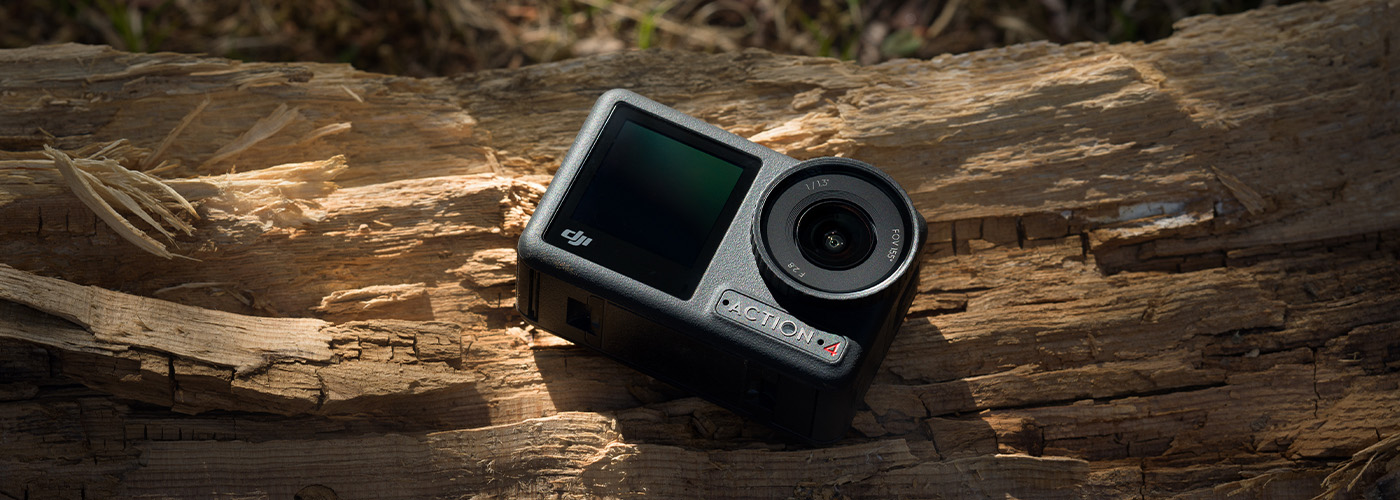
DJI Osmo Action 4 is a cheaper version of the popular current Action 5 Pro, but you have to admit that it is still a good piece of equipment. If you want to save, but you don't want to sacrifice quality. It's still a very good choice - especially since you can now buy it for a fraction of the price of newer models. The camera has the same sensor 1/1.3", what the Action 5 Pro, handles challenging conditions very well and supports profile recording D-Log M. For many people, the differences between this and the newer model (m.in. lack of built-in memory and a slightly weaker battery) will not be significant - and the price difference could be as much as 50%.
Action 4 is a camera that perfectly fits the needs of most users. It has the same sensor as the more expensive Pro model, but costs less and performs similarly. It will perform well on the bike, in the mountains, underwater and while driving, rendering great quality in 4K.
Pros:
- very good image quality (sensor 1/1.3")
- d-Log M color profile
- great stability and uptime
- waterproof without housing (up to 18 m)
Minuses:
- no built-in memory
- slightly worse autofocus than the Pro model
- fewer recording modes than top cameras
Top camera quality for content creators
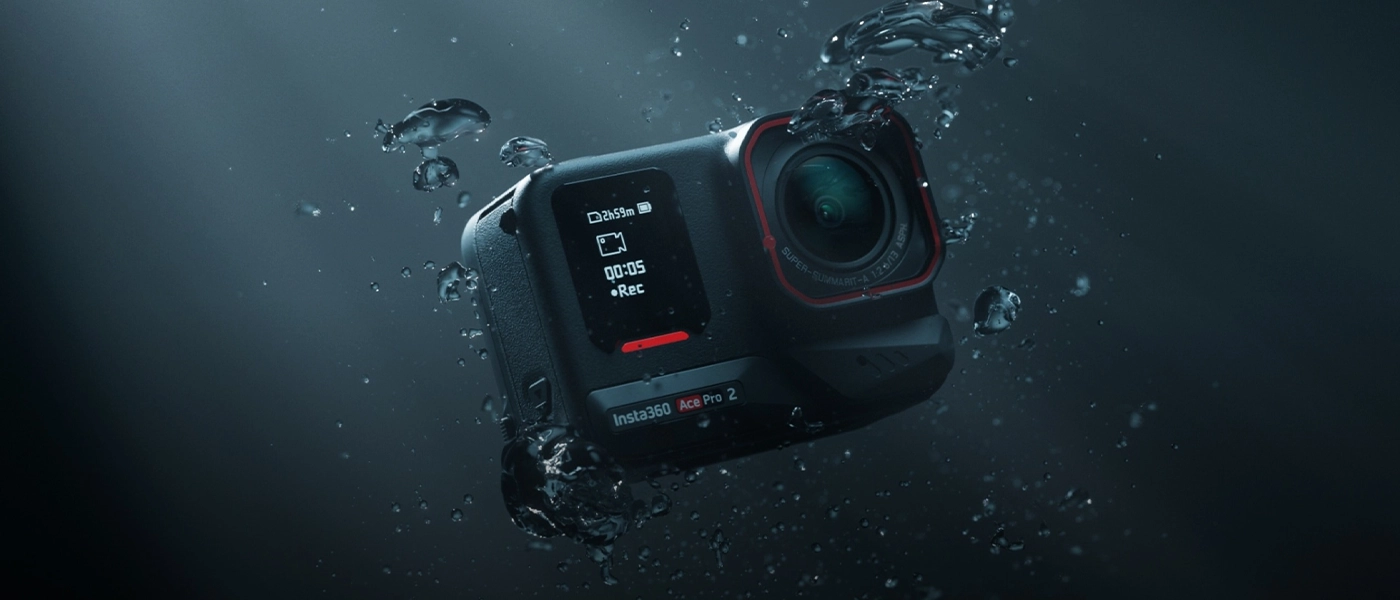
Insta360 Ace Pro 2 is an action camera that firmly raises the bar for users expecting high quality and versatility. Built around a large 1/1.3″ sensor and dual-chip AI system, offers resolution 8 K/30 FPS, 4 K/60 FPS, HDR or slow-motion recording at 4 K/120 FPS, and additionally allows photography 50 MP. Cooperation with leica optics and PureVideo mode they make the Ace Pro 2 perform very well even in difficult lighting conditions. However, the camera is larger and heavier than the competition which may be key for some people.
The Ace Pro 2 is an action camera that excels in poor light - both in terms of video and audio. The stabilization works great at normal rates of motion, and the flip-screen is a great convenience. This model works great as an everyday creator's tool - vlogs, travel, relationships - especially in the Insta360 ecosystem.
Some people may complain about artifacts in 8 K or mild color oversaturation-but this is equipment for everyday work, not for the most demanding productions. As a premium all-purpose action camera, it fits the needs of most content creators in 2025 very well.
Pros:
- great quality at night and high dynamic range (13.5 EV)
- highly effective and smooth 4K/60 FPS stabilization
- Flip-screen convenient for selfies and vlogging
- built-in wind-guard and support for external microphones (e.g., DJI Mic 2)
- device can power another device like a charger
- insta360 and Shot Lab app for quick editing and AI effects
Minuses:
- limited stabilization in 8 K mode, visible artifacts
- bigger and heavier than Action 5 or Hero 13
- no internal memory - requires a microSD card
- oversaturated colors in standard mode - this can be alleviated by selecting the Leica Natural profile
The smallest and cheapest sports camera proposal
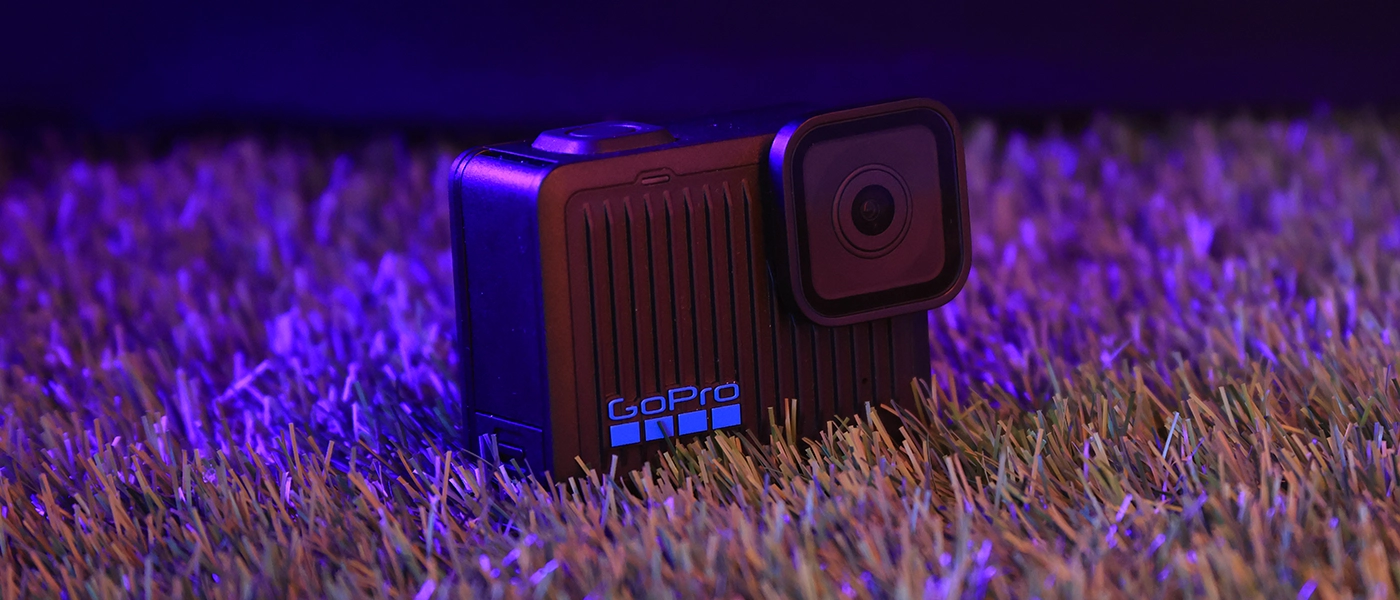
GoPro Hero (4K) is a lightweight and small sports camera. GoPro has returned to the idea of minimalist cameras, releasing a small and lightweight version of the Hero 13. You won't find front screen or 5.3K recording, and stabilization has to be added in the Quik app. But... it's a really cool, handy camcorder, ideal for helmet, bicycle or as a spare. It is so lightweight that you can forget about it, and the 4K/30FPS quality is quietly is enough for most applications. It lacks a built-in magnet, which limits mounting options - but at this price it's hard to ask for more.
Compared to advanced devices like the Insta360 Ace Pro 2, the GoPro Hero 4K regresses on performance, but the size and price compensate this compromise. What it makes up for with its simplicity, light weight and intuitive controls - perfect for everyday use, recording vacation memories or filling in the frame when paired with another, more advanced camera. From our experience: We have also tested the GoPro Hero (4K) on drones and with its light weight and great for aerial shots.
Pros:
- price much lower than other sports camera models
- 4K/60 FPS recording
- compact design and light weight (can be attached to the drone)
- easy to use, intuitive interface
- waterproof to 5 meters
Minuses:
- no built-in log and HDR profile
- does not have a front screen and status display
- weaker stabilization (HyperSmooth is implemented in the application)
- lower quality recordings after dark
- connectivity and accessories limited
Comparison of sports camera specifications
Below is a table in which we have gathered the most important parameters in one place. You'll check resolution, sensor type, water resistance, battery life, internal memory, stabilization, price and other important camera features:
| Camera | |||||
| Video resolution |
4K/120 FPS |
5.3K/60 FPS |
8K/30 FPS |
4K/60 FPS |
4K/30 FPS |
Video format |
10-bit D-log M |
10-bit Log Video |
I-Log |
10-bit D-log M |
8-bit |
Image resolution | 40 MP | 27 MP | 50MP | 10 MP | 12 MP |
Matrix |
1/1.3" CMOS |
1/1.9" CMOS |
1/1,3" CMOS |
1/1.3" CMOS |
1/2.8" CMOS |
Viewing angle | 155° | 156° | 157° | 155° | 165° |
Aperture | f/2.8 | F2.5 | F2.6 | f/2.8 | F2.3 |
Image stabilization |
RockSteady 3.0 |
HyperSmooth 6.0 |
FlowState |
RockSteady 3.0 |
HyperSmooth |
Screens |
Front: Rear: |
Front: Rear: |
Rear:
|
Front: Rear: |
Rear: |
Night mode |
SuperNight (AI) |
Star Trails |
PureVideo |
No |
No |
Slow Motion | Super Slo-Mo 32x Slow-Mo 4K: 4x 120FPS | Burst Slo-Mo 720p: 13x 400FPS Slow-Mo 5.3K: 2x |
Slow-Mo 4K: 120/100FPS |
Slow-Mo 4K: 4x 120FPS |
Slow-Mo 2.7K: 2x 60/50FPS |
Waterproof | 20 m | 10 m | 12 m | 18 m | 5 m |
Battery |
1950 mAh |
1900 mAh |
1800 mAh |
1770 mAh |
1255 mAh |
Working time |
up to 240 min |
up to 160 min |
up to 180 min |
up to 160 min |
up to 140 min |
Charging time |
about. 60 min |
about. 120 min |
about. 50 min |
about. 60 min |
about. 120 min |
Microphones |
3 × omnidirectional |
3 × omnidirectional |
3 × omnidirectional |
3 × omnidirectional |
× 2 |
Dimensions | Sh: 70.5 mm | Sh: 71.8 mm W: 50.8 mm G: 33.6 mm | Sz: 71.9 mm W: 52.2 mm G: 38 mm | Sh: 70.5 mm W: 44.2 mm G: 32.8 mm | Sh: 56.6 mm W: 47.7 mm G: 29.4 mm |
Weight | 146 g | 159 g | 177 g | 145 g | 86 g |
Memory |
47 GB |
No |
No |
No |
No |
| Price | pLN 1,799 | pLN 1,949 | pLN 2,049 | pLN 1,599 | 999 zł |
| Accessories | Action Accessories | GoPro Accessories | Insta360 Accessories | Action Accessories | GoPro Accessories |
*Prices listed above are valid as of 06/08/2025 and are subject to change.
Comparison of creative camera specifications
Below is a table in which we have collected the most important parameters. You'll check the resolution, sensor type, color mode, battery life, internal memory, stabilization, price and other important camera features:
| Camera | 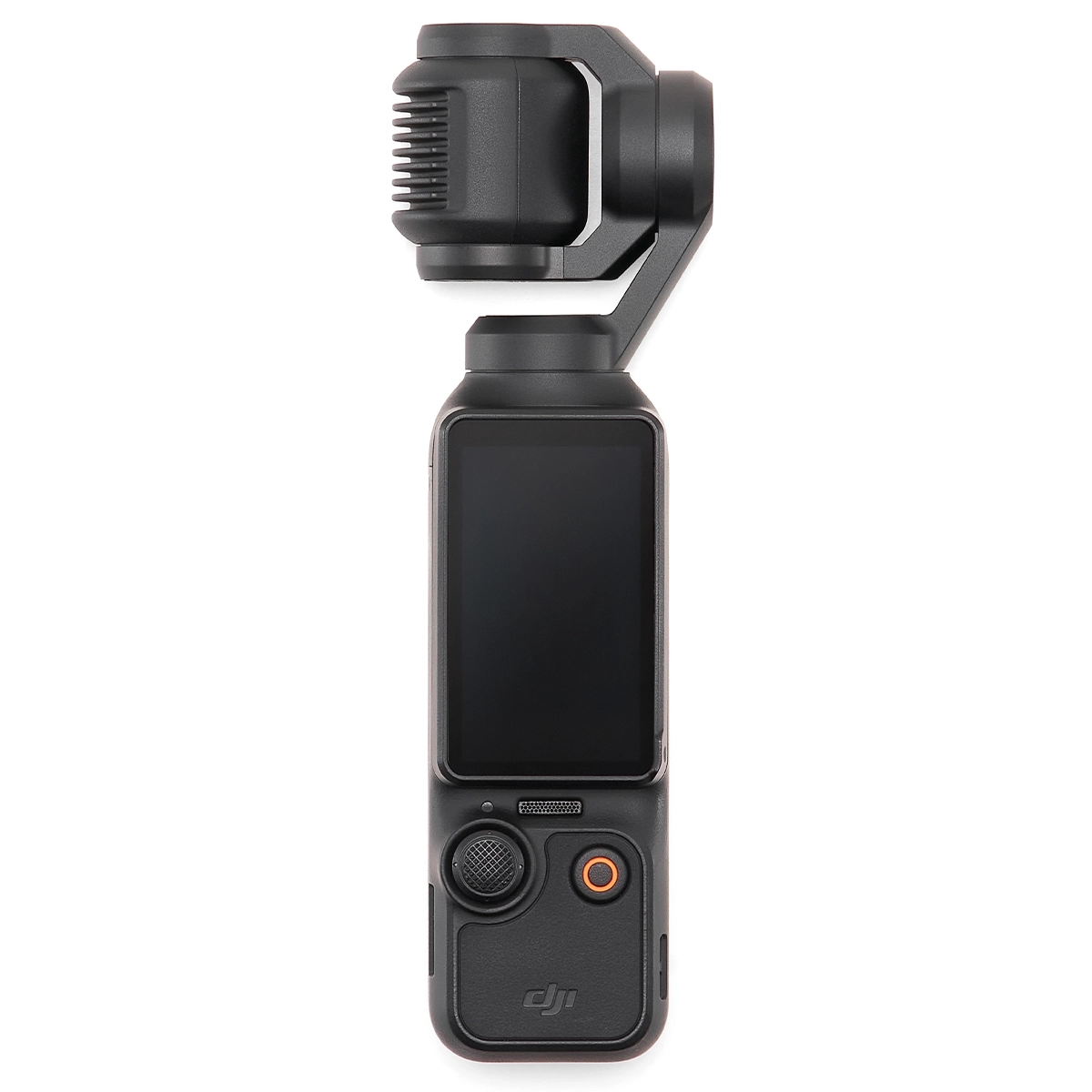
| 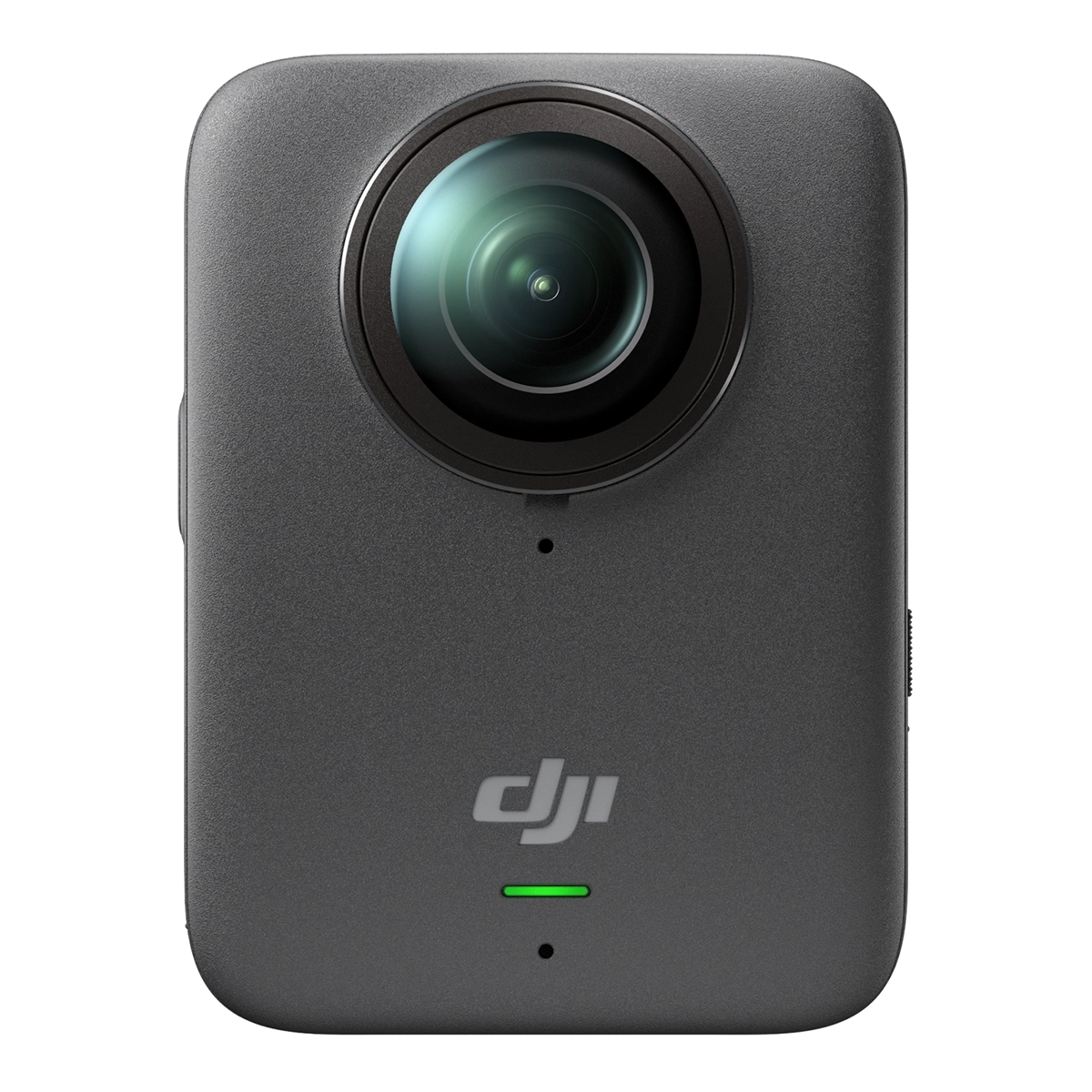
| 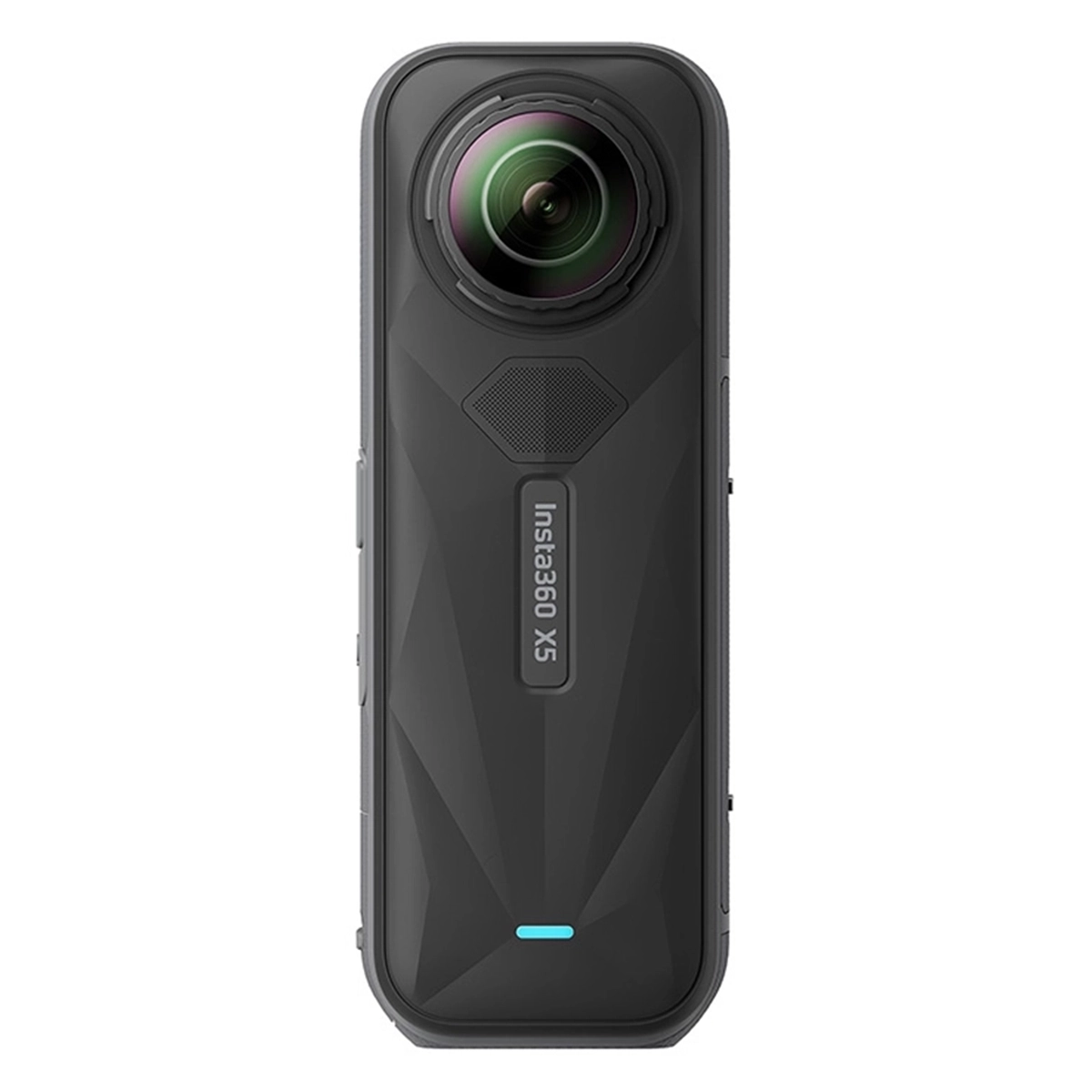
| 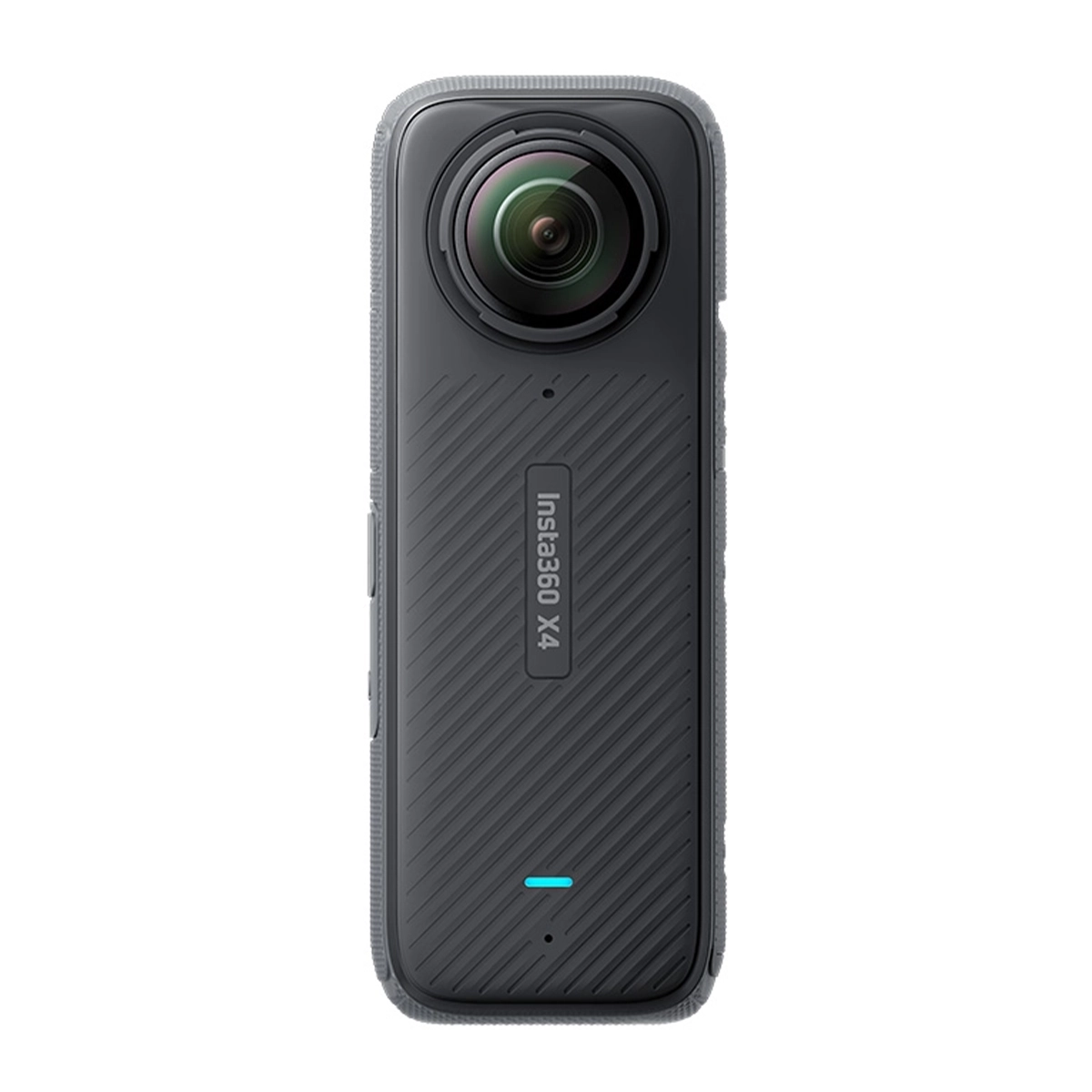
|
Resolution video |
4K/60 FPS |
8K/50 FPS |
8K/30 FPS |
8K/30 FPS |
Video format |
10-bit D-log M |
10-bit & D-Log M |
I-Log |
Log |
Resolution photos | 9.4 MP | 120 MP | 72 MP | 72 MP |
Matrix |
1" CMOS |
1/1.1" CMOS |
1/1,3" CMOS |
1/1.3" CMOS |
Viewing angle | 108° | 170° | 170° | 170° |
Aperture | f/2.8 | f/1.9 | f/2.0 | f/1.9 |
Stabilization image |
3-axis gimbal |
HorizonSteady |
FlowState |
FlowState |
Screens |
Rear: |
Rear: |
Rear: |
Rear: |
Night mode |
Glamour Effects 2.0 |
SuperNight |
NightMode |
No |
Slow Motion | Slow-Mo 4K: 120FPS | Slow-Mo 4K: 4x 100FPS | Slow-Mo 4K: 100FPS | Slow-Mo 4K: 100FPS |
Waterproof | Not | 10 m | 15 m | 10 m |
Battery |
1300 mAh |
1950 mAh |
2400 mAh |
2290 mAh |
Working time |
up to 116 min 4K 60FPS |
up to 100 min 8K 30FPS |
up to 93 min 8K 30FPS |
up to 75 min 8K 30FPS |
Charging time |
about. 32 min |
about. 32 min |
about. 35 min |
about. 55 min |
Microphones |
3 × omnidirectional |
4 × omnidirectional |
3 × stereo |
3 × stereo |
Dimensions | Sz: 42.2 mm | Sh: 36.3 mm W: 81 mm G: 61 mm | Sh: 46 mm W: 124.5 mm G: 38.2 mm | Sh: 46 mm W: 126.3 mm G: 37.6 mm
|
Weight | 179 g | 183 g | 200 g | 203 g |
Memory |
No |
128 GB |
No |
No |
| Price | pLN 2,599 | pLN 2,149 | pLN 2,599 | pLN 2,189 |
| Accessories | Accessories DJI Pocket 3 | Accessories DJI Osmo 360 | Insta360 Accessories | Insta360 Accessories |
*Prices listed above are valid as of 06/08/2025 and are subject to change.
What to look for when choosing a sports camera?
Choosing a sports camera is more than just comparing dry parameters. The key is to match the equipment to your real needs and recording style. Here are the most important points to consider before buying:
Durability and resilience
If you plan to record in the rain, cycling, snowboarding or off-road, the camera should be:
- waterproof (preferably without additional housing)
- dustproof and shockproof
- robustly made - ready for extreme conditions
Image quality
High quality recording is not just a matter of pixel count. Although 4K is the standard today, not every 4K camera records as well. Differences can be seen in detail, color and image behavior in difficult lighting conditions.
- HDR - preserves detail in both the light and dark parts of the image for a more natural and "cinematic" effect.
- Log profiles (e.g. D-Log, V-Log, Flat) - enable advanced color correction in post-production and greater control over the aesthetics of the footage.
- Bandwidth of the recording (bitrate) - the higher it is, the less compression, resulting in sharper images and more detail.
In practice, this means that a camera with "only" 4K can give much better material than those offering even 5.7K or 8K - if it has a better color profile, higher bandwidth and well-calibrated optics.
Image stabilization
Crucial for dynamic shots, such as skiing, biking or running. Ideally, the camera offers:
- physical or electronic stabilization
- smoothness of the recording even in heavy traffic
Sensor and lighting conditions
The larger the sensor, the better the results in low light. For those recording in the evenings or in difficult lighting conditions, this is an especially important feature.
Audio and preview screen
For vloggers and social media creators, it is not only the image that matters, but also the sound and control of the frame:
- front preview screen makes it easy to record selfies
- support for external microphones (e.g. DJI Mic) provides better audio quality
Vertical and horizontal recording
If you're creating content primarily for TikTok, YouTube Shorts or Instagram Reels, it's worth considering a camera with native portrait mode - it makes editing and publishing easier without having to rotate the footage.
Operating time and memory
Longer recordings require:
- a robust battery (preferably replaceable)
- a large memory card or built-in memory (some models offer up to 128 GB to start)
Ease of use and applications
Some brands - such as Insta360, DJI and GoPro - offer powerful apps for editing, previewing and managing footage. It's worth checking out what the workflow looks like in practice - because fast and convenient editing is often the key to publishing material.
Summary
In 2025 choosing a sports camera will no longer come down to just one brand or one model. The market offers a lot of great solutions - from lightweight and compact cameras perfect for a bike or drone, to versatile tools for vloggers, to advanced 360° cameras for creative makers.
What's most important is to tailor the equipment to your own needs - and not just be guided by the number of megapixels or a trendy brand. If you shoot mainly during the day, and you care about mobility and simplicity - you may just need a lightweight GoPro Hero 4K. If you're creating content for the web and you're hoping for great sound, stabilization and video, DJI Pocket 3 will do the job. And if you want complete control over the shot - 360° cameras open up entirely new possibilities for editing and visual narration.
If we had to name one model that we think currently has the best combination of quality, features and price - we would bet on DJI Osmo 360. This camera really surprised us. It's lightweight, performs well at night, has 8K resolution and a rich color mode, and offers up to 128GB of built-in memory and very good sound quality. It's a camera that not only keeps up with the competition, but in many ways surpasses it - and costs less than some top models. For those looking for equipment with the potential to last for years, this is one of the best choices in our opinion.
But of course - this is just our opinion. The choice always depends on how and where you record, at what frequency and what effect you want to achieve. That's why we made such a variety of suggestions in the article - so that everyone can choose something for themselves, rather than "for everyone".
If you have questions or are not sure which camera will best meet your needs - get back to us. We are happy to advise based on real tests, not catalog descriptions.






























































